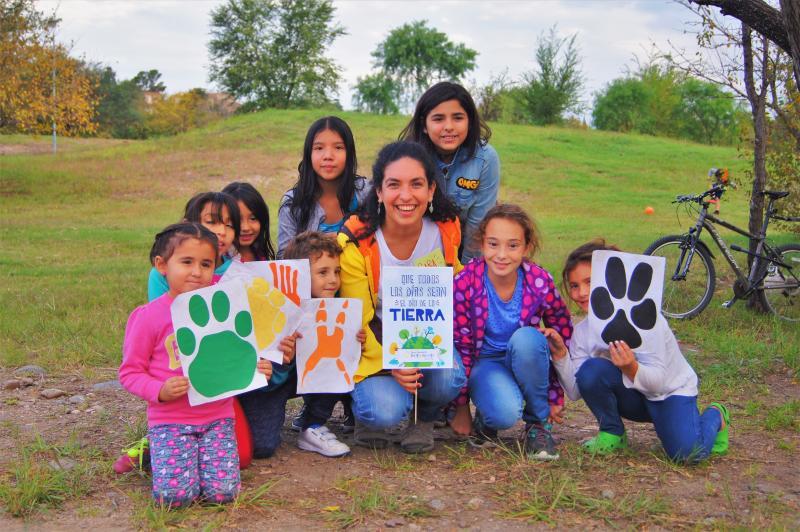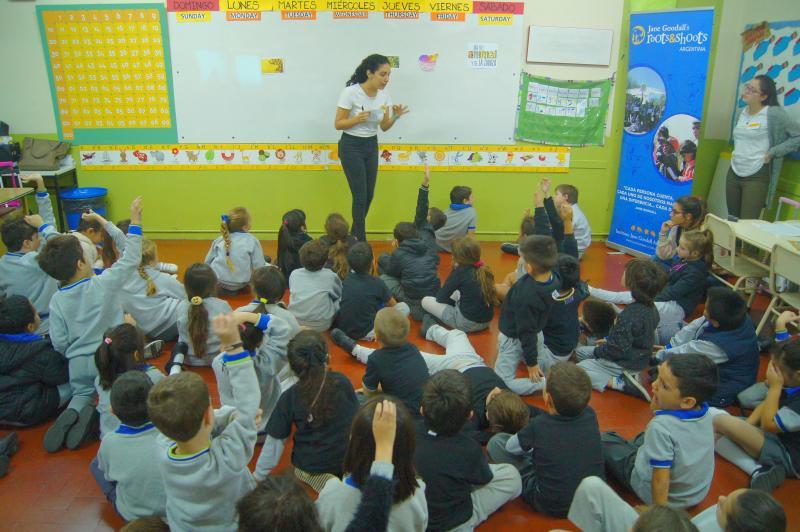Tomas Teicher
Long Bio
How are you using education to build more sustainable and equitable communities? Tell us about your EE work and impact.
I believe that environmental education is the key to understanding the things we can do today to fight climate change, and also to prepare for the years to come and the best ways to adapt. In my opinion, education has to be fun and needs an interdisciplinary approach.
I’m the co-founder of Consciente Colectivo, a youth social and environmental organization that emerged in the midst of the COVID pandemic as a response to political inaction in our country and region. Given this, and in order to build collectively, Consciente Colectivo was born to fight for an undervalued agenda. Our mission is to build a more just, sovereign, and sustainable Argentina. Our main work is based on advocacy for the public and political agenda, promotion of citizen participation, comprehensive education, and communication in a national, regional and global context of climate and socio-environmental crises.
I co-direct a project called “Environmental Leaders Training” for young people. Our primary focus is on empowering young individuals by providing them with comprehensive knowledge about socio-environmental issues and equipping them with the skills to create projects from scratch. Through collaborative teamwork, we guide these young leaders in developing innovative solutions to address environmental problems within their communities.
Tell us about your journey to where you are today. What inspired you? What has your path been like?
I lived all my life in Buenos Aires, a city where, sadly, it is really common to see kids living in the streets. That means that our children’s rights are not being fulfilled. I want to change that; our generation needs to change this.
That’s why I have volunteered and worked in nonformal and formal education since I was a teenager. I believe that education is the path to a more equal world. My family and friends always supported me to fulfill my ambition of making a difference.
At the age of 14, I began participating in impactful local projects through trips to rural schools in different provinces of Argentina. There I organized workshops, collections ,and activities for young people. After that, I decided to get involved in CADENA, a humanitarian and nonprofit organization in the education space. I have also led activities for teen groups and a Leaders Training in my Jewish community.
In 2020, along with other colleagues and friends, I co-founded Consciente Colectivo where I made different actions to fight climate change. In addition, I have a degree in Social Communication and in General Journalism. I currently work as the Coordinator of the Children and Youth Area at Ashoka South Cone.
A Little More About Me
What do you like most about being an environmental educator?
When I give a class or training and see other people's faces of focus and concentration, or that magical "aha" moment in class when someone comes up with a new way to tackle the climate crisis.
What (or who) keeps you hopeful for the future?
The powerful work that tons of people do every day to make the world a better place, and seeing more and more young people getting involved in climate action.
What are you happiest doing?
Playing. There are always fun moments where you can connect with other people in a special and unique way.
How do you recharge?
Hanging out with my partner, friends, and family because they always support me, and also watching musical shows.
Country

